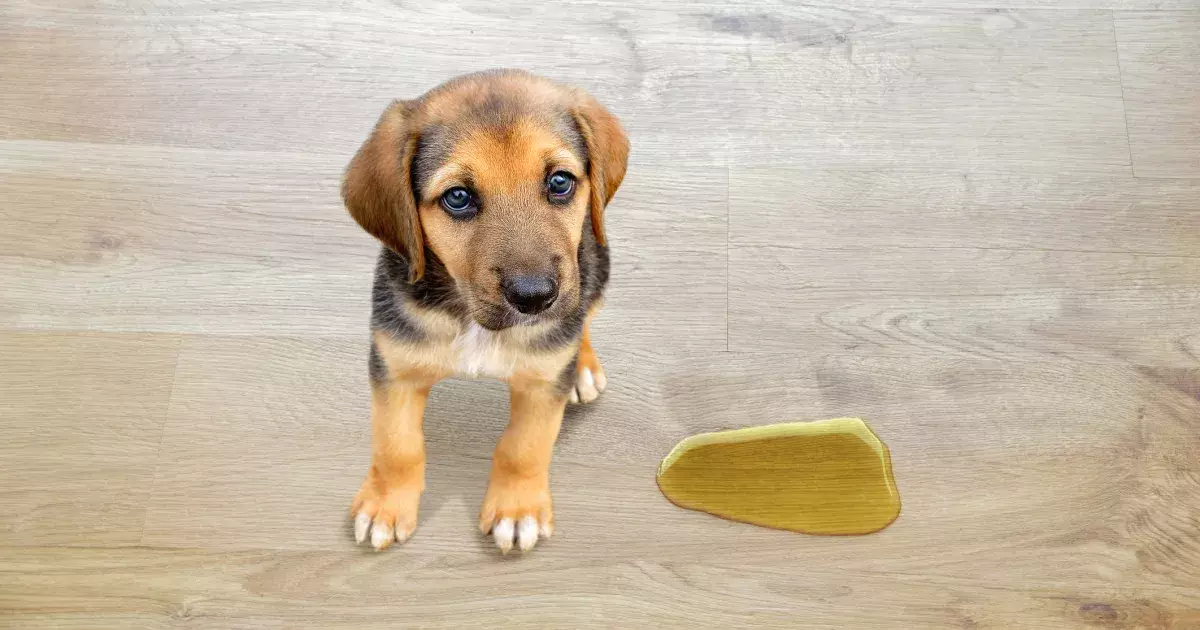As devoted dog owners, we often find ourselves navigating the complexities of our furry companions’ behaviors. One of the most challenging issues is involuntary urination, which can create considerable distress for both pets and their owners. While accidents during the potty training phase are to be expected, when a dog experiences involuntary urination outside of regular intervals, it’s essential to take a close look at potential causes and solutions.
Involuntary urination can stem from various underlying health issues, emotional stressors, or developmental stages. Ignoring these signs can lead to a deterioration of your pet’s quality of life, so understanding and addressing the problem is crucial.
Urinary Tract Infections (UTIs) stand out as one of the leading culprits behind involuntary urination. These infections instigate discomfort, compelling dogs to urinate more frequently, often in distressing circumstances. Pet owners should watch for telltale signs, such as increased urination frequency, blood in the urine, or excessive licking around the genitals.
Hormonal imbalances that occur in spayed or neutered dogs can also precipitate involuntary urination. The drop in estrogen or testosterone levels weakens bladder control, leading to unfortunate accidents that can be frustrating for both the dog and its owner.
Additionally, age plays a significant role in this condition. Just as we experience declines in muscle function as we age, so do our canine companions. Senior dogs often suffer from weakened bladder muscles and may also face cognitive impairments like dementia, both of which contribute to involuntary peeing.
In some cases, a dog may urinate due to excitement or anxiety, particularly in younger pups who haven’t mastered bladder control. This emotional response may stem from social interactions or sudden changes in their environment. For such cases, a sensitive and patient approach can do wonders in reshaping their behavior.
If your dog begins to exhibit signs of involuntary urination, your first course of action should be to consult a veterinarian. A thorough examination is essential to identify underlying medical conditions such as urinary tract infections, hormonal disturbances, or other health issues that may contribute to this behavior.
Your veterinarian may recommend various diagnostic tests to pinpoint the problem accurately. This information is crucial for determining an effective treatment plan that addresses both the symptoms and the underlying cause of involuntary urination.
Once you have a solid understanding of the causes behind your dog’s involuntary urination, you can begin to implement solutions tailored to their specific needs. For starters, reestablishing consistent potty training routines can work wonders. Even if a dog is previously trained, reinforcing these techniques by maintaining regular walking and bathroom schedules can help restore bladder control.
Additionally, managing your dog’s emotional state is vital, particularly for those prone to excitement or anxiety-induced urination. Gradually introducing your dog to stimuli that trigger these emotions, while using reward-based training methods, can significantly enhance their self-control and confidence.
When medical interventions are necessary, your veterinarian may suggest certain medications or supplements aimed at resolving health concerns contributing to involuntary urination. These might include treatments for UTIs, hormonal therapies, or supplements designed to strengthen bladder function.
In the interim, temporary measures such as belly bands or specially designed dog diapers can help manage accidents effectively. While not a permanent solution, these tools can ease the burden of messes while you work on the underlying issues.
Environmental management is another essential strategy in tackling involuntary urination. Using puppy pads in easily accessible areas can provide dogs with alternate options during training. Additionally, investing in waterproof furniture covers and employing cleaning products designed to eliminate pet urine odors can maintain a pleasant space for both you and your dog.
Ultimately, addressing involuntary urination in dogs requires patience and a thorough understanding of the animal’s needs. Empowering yourself with knowledge, seeking veterinary support, and employing targeted interventions can help restore harmony in your home. Each dog’s journey is unique, and with commitment and the right tools, you can guide your furry friend toward a more confident and accident-free life.

